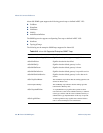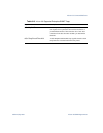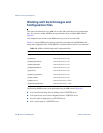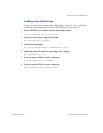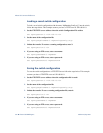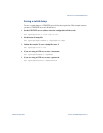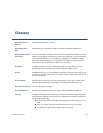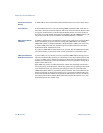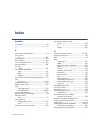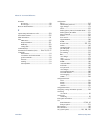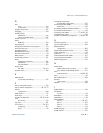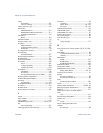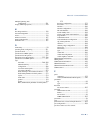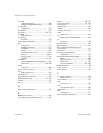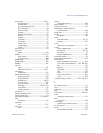Alteon OS Command Reference
374
Glossary 43W7774, May 2007
VIR (Virtual Interface
Router)
A VRRP address that is an IP interface address shared between two or more virtual routers.
Virtual Router A shared address between two devices utilizing VRRP, as defined in RFC 2338. One vir-
tual router is associated with an IP interface. This is one of the IP interfaces that the switch
is assigned. All IP interfaces on the GbE Switch Module must be in a VLAN. If there is
more than one VLAN defined on the GbE Switch Module, then the VRRP broadcasts will
only be sent out on the VLAN of which the associated IP interface is a member.
VRID (Virtual Router
Identifier)
In VRRP, a value between 1 and 1024 that is used by each virtual router to create its MAC
address and identify its peer for which it is sharing this VRRP address. The standard
VRRP MAC address as defined in the RFC is 00-00-5E-00-01-{VRID}. For virtual rout-
ers with a VRID greater than 255, the following block of MAC addresses is allocated:
00:0F:6A:9A:40:00 - 00:0F:6A:9A:47:FF
If you have a VRRP address shared between two switches, then the VRID must be identi-
cal on both switches so each virtual router on each switch knows with whom to share.
VRRP (Virtual Router
Redundancy Protocol)
A protocol that acts very similarly to Cisco's proprietary HSRP address sharing protocol.
The reason for both of these protocols is so devices have a next hop or default gateway that
is always available. Two or more devices sharing an IP interface are either advertising or
listening for advertisements. These advertisements are sent via a broadcast message to an
address such as 224.0.0.18.
With VRRP, one switch is considered the master and the other the backup. The master is
always advertising via the broadcasts. The backup switch is always listening for the broad-
casts. Should the master stop advertising, the backup will take over ownership of the
VRRP IP and MAC addresses as defined by the specification. The switch announces this
change in ownership to the devices around it by way of a Gratuitous ARP, and advertise-
ments. If the backup switch didn't do the Gratuitous ARP the Layer 2 devices attached to
the switch would not know that the MAC address had moved in the network. For a more
detailed description, refer to RFC 2338.



